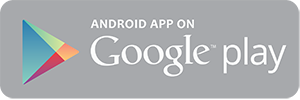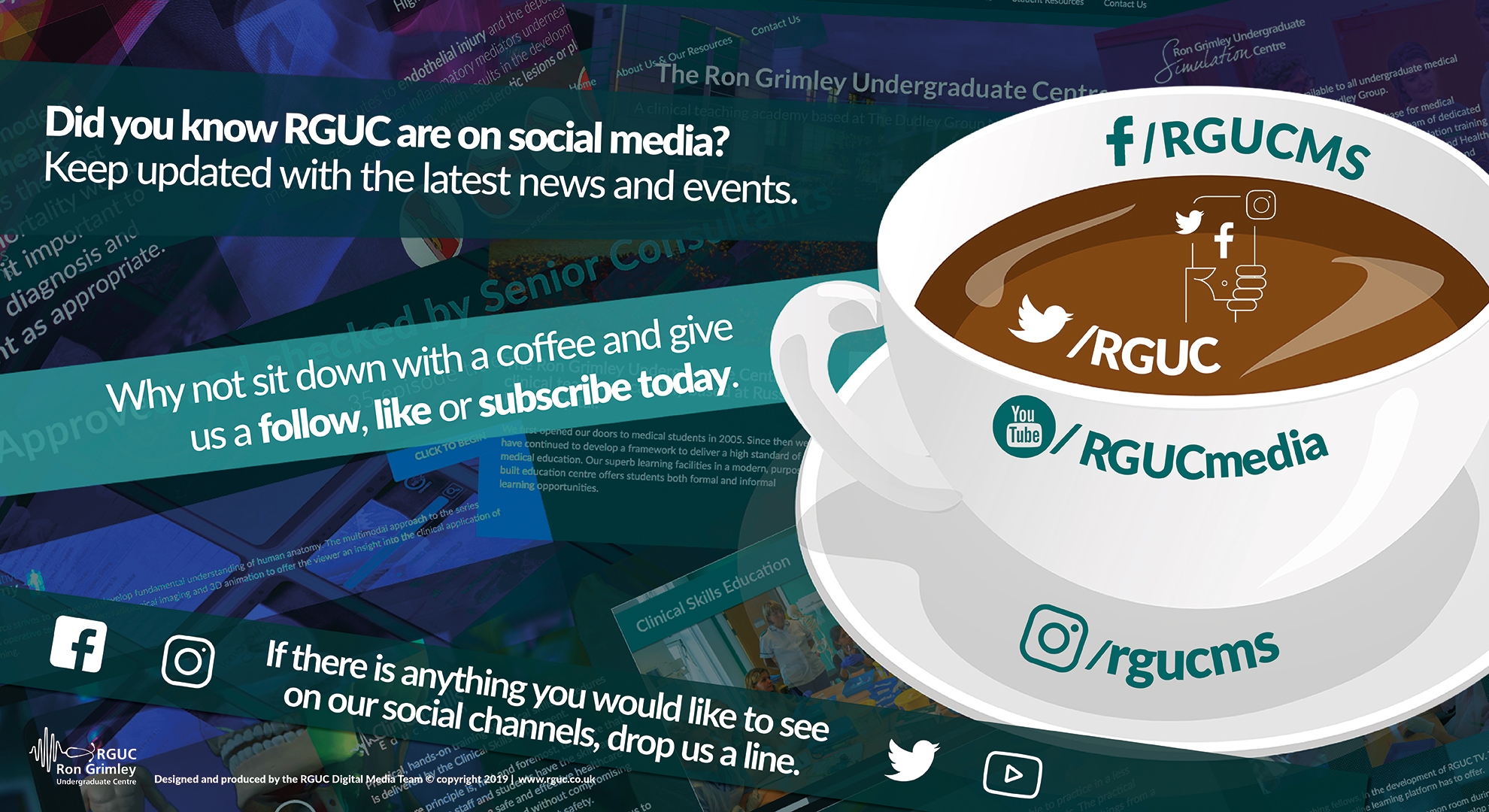
RGUC Newsletter
SEPTEMBER 2021
Welcome to the September 2021 edition of the RGUC Newsletter
This newsletter updates members of the Dudley Group Undergraduate Teaching Academy and medical students about projects and resources being developed to supplement learning and medical education. We aim to publish an edition every quarter.
KEY DIARY DATES
Fourth year students’ return date – Wednesday 1st September
Fifth year students’ start date – Wednesday 1st September
Third year students’ start date – Monday 6th September
ACADEMY MEETINGS
Tuesday 7th September
Tuesday 5th October
Tuesday 2nd November
All academy meetings are hosted on Microsoft Teams. Invites are sent by Jeanne Harris, Deputy Clinical Teaching Academy Manager.
CONTENTS
In this edition...
- Key diary dates
- What is the RGUC?
- Welcome to our new staff members
- Project Resources update;
- Lecture Series
- iClinical® Apps
- Tips for the Wards
- Interprofessional Education Plenary Day
- Social Media
What is RGUC?
Prof Atiq-ur Rehman is the Head of Academy at the RGUC. He works closely alongside Teaching Academy and Medical Education Manager, Kate Holmes, to ensure the RGUC is running efficiently.
Jeanne Harris is the Deputy Clinical Teaching Academy Manager. She has responsibility for the day to day running of the RGUC as well as overseeing the third year medical student curriculum.
Debra Whittall is the fifth year coordinator. She is responsible for organising and administering the fifth year medical student curriculum and supporting the general running of the centre on a daily basis.
Jessica Dudley is the fourth year coordinator. She supports all fourth year medical students that join us on placement, as well as providing general administrative support to the wider team.
Laura James is the Learning and Technology Support. She is the lead administrator for physician associate students within the Trust and also supports the RGUC Digital Media Team producing visually enhanced educational resources for the students.
Also supporting the functionality of the RGUC and the student’s curriculum are the Academy Deputies; Dr Philip Brammer and Dr Ravinder Sandhu. They work closely with the Head of Academy with organising and delivering the undergraduate curriculum for all years across the organisation
Staff Spotlight
Welcome to our new staff members
We are delighted to welcome several new staff members who will be supporting the delivery of medical education across the undergraduate clinical teaching academy.
Kate Holmes - Medical Education Manager
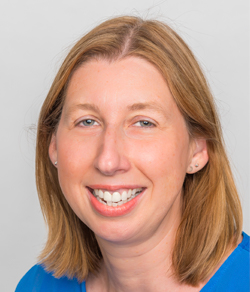 Kate joins the administration team as the Medical Education Manager. She takes over from Barbara White who retired from the team in June 2020. Kate is responsible for managing the team of people who run Dudley Clinical Education for multidisciplinary education, training and development purposes and also the Ron Grimley Undergraduate Centre for Medical Studies. She assists the Clinical Tutor and his Deputy and the Head of the Teaching Academy in all aspects of junior doctor and medical student education.
Kate joins the administration team as the Medical Education Manager. She takes over from Barbara White who retired from the team in June 2020. Kate is responsible for managing the team of people who run Dudley Clinical Education for multidisciplinary education, training and development purposes and also the Ron Grimley Undergraduate Centre for Medical Studies. She assists the Clinical Tutor and his Deputy and the Head of the Teaching Academy in all aspects of junior doctor and medical student education.
Clinical Teaching Fellows;
Aidan Butler
Ella Stoddart
Hannah Tattersall
James Biggs
Jessica Davies
Sophie Wallace

Welcome to James, Aidan, Jessica, Ella, Hannah and Sophie, our new intake of clinical teaching fellows who joined us at the beginning of August. For the next 12 months they will be supporting the delivery of medical education to medical students, whilst also getting involved in developing new learning resources alongside the media team.
Patrick Beard - IT Developer
 Patrick supports the digital media team with application development and maintaining the Undergraduate Centre’s servers and systems. His background working at a university focused on supporting students, staff, and faculty in diverse disciplines. This included developing full stack web solutions and supporting the use of advanced visualisation equipment. He is passionate about education and is always exploring how technology can contribute to the learning process.
Patrick supports the digital media team with application development and maintaining the Undergraduate Centre’s servers and systems. His background working at a university focused on supporting students, staff, and faculty in diverse disciplines. This included developing full stack web solutions and supporting the use of advanced visualisation equipment. He is passionate about education and is always exploring how technology can contribute to the learning process.
Clinical Teaching Academy Leads
In order to coordinate the teaching and ensure that the curriculum requirements are met for all our medical students, Mr Rehman has put in place leads for each of the year groups.

Third year medical students
Students are looked after by Dr Rav Sandhu, Dr Phil Brammer and Dr Selva Selvaraj. Both Dr Sandhu and Dr Brammer are also Prof Rehman’s Academy Deputies.
Fourth year medical students
Students are looked after by Dr Frances Lay, who has recently taken over this role.
Fifth year - Acutely ill Patients
These placements are looked after by Dr Nicola Calthorpe, who has been the Lead for this group of students for a number of years.
Fifth year - Obstetric and Gynaecology
Students are over seen by Mr Basem Muammar
Fifth year - Paediatrics
Students are led by Dr Subramian Mahadevan.
Tips for the Wards
We asked a few of our Clinical Teaching Academy Members (Dr Peter Doyle, Mr Neil Molony, Dr Rav Sandhu and Mr Mike Wall) for their best tips and advice for students when on the wards.

Here is what they told us:
Q1. What makes a good medical student?
Peter Doyle: “I tell the students who come here; if you want to be really good and get a good mark from me, you need to be a pleasant pain in the arse. So you need to be there, be asking, can you do this, can you do that? Be interested, be keen, be well-read”.
Neil Molony: “Don’t be shy, medical students often sit on the edge because there isn’t a defined role, the way there might be for a student nurse or a trainee lab technician. Medical students often are quite shy. It’s better to smile, come out there, look smart, and step up to the plate”.
Q2. Top tips for taking histories from patients?
Mike Wall: “I think the simple and most important thing you’re taught is your structure on how to take a history, but the most important thing to do is to listen to the patient. The patient will guide you in how you’re going to proceed with your history taking and, as you develop your skills and listen to them more and more, you can get expanded on the areas which are of interest to you in the patient”.
Neil Molony: “You have to learn how to steer the conversation slightly and not go down blind alleyways. People may need to vent a bit, but remember to keep your mind on what you’re trying to ascertain and get good at summarising things in your mind and putting it into boxes”.
Q3. Do you have any advice for students on their hospital placements?
Rav Sandhu: “Learning how to prioritise tasks. You’ll have a number of tasks to do, and I think it’s sort of, sitting down for five minutes at the beginning of the day, and trying to order those tasks into what’s important, what needs to be done now”.
Mike Wall: “Get involved. There’s loads of stuff going on in the hospital, there’s loads of patients to see. Speak to the junior doctor, speak to senior doctors, and the nursing staff, find those patients, go and talk to them, and just get involved with the workings of the team. You’ll learn so much more, so much more quickly once you get involved”!
You can watch the full series of our ‘Tips For…’ videos on the RGUC Online Learning Platform, or by heading over to our YouTube playlist –
https://www.youtube.com/playlist?list=PLUB-INU9UUFLsfTUMLIOgJ_3ah4EdaUkF
3rd Year Lecture Programme

Over 50 lectures covering over 15 topics
The MBChB lecture programme for third year undergraduate medical students is a core aspect of the hospital placement experience. The introduction of the Lecture Series allows students the option to receive theory teaching remotely. The impact of COVID-19 pretty much eliminated the opportunities for face-to-face lecture-based teaching, and has reinforced the demand for such resources.
The Lecture Series comprises more than 35 topics spanning the first and second semesters of the third year hospital placement programme. All lectures are validated by clinicians from the relevant clinical specialty.
Currently exclusively available to University of Birmingham medical students, the Lecture Series mobile app for wider audiences is anticipated for release in 2022.
University of Birmingham medical students can access the Lecture Series by selecting the following link and logging in with their user credentials.
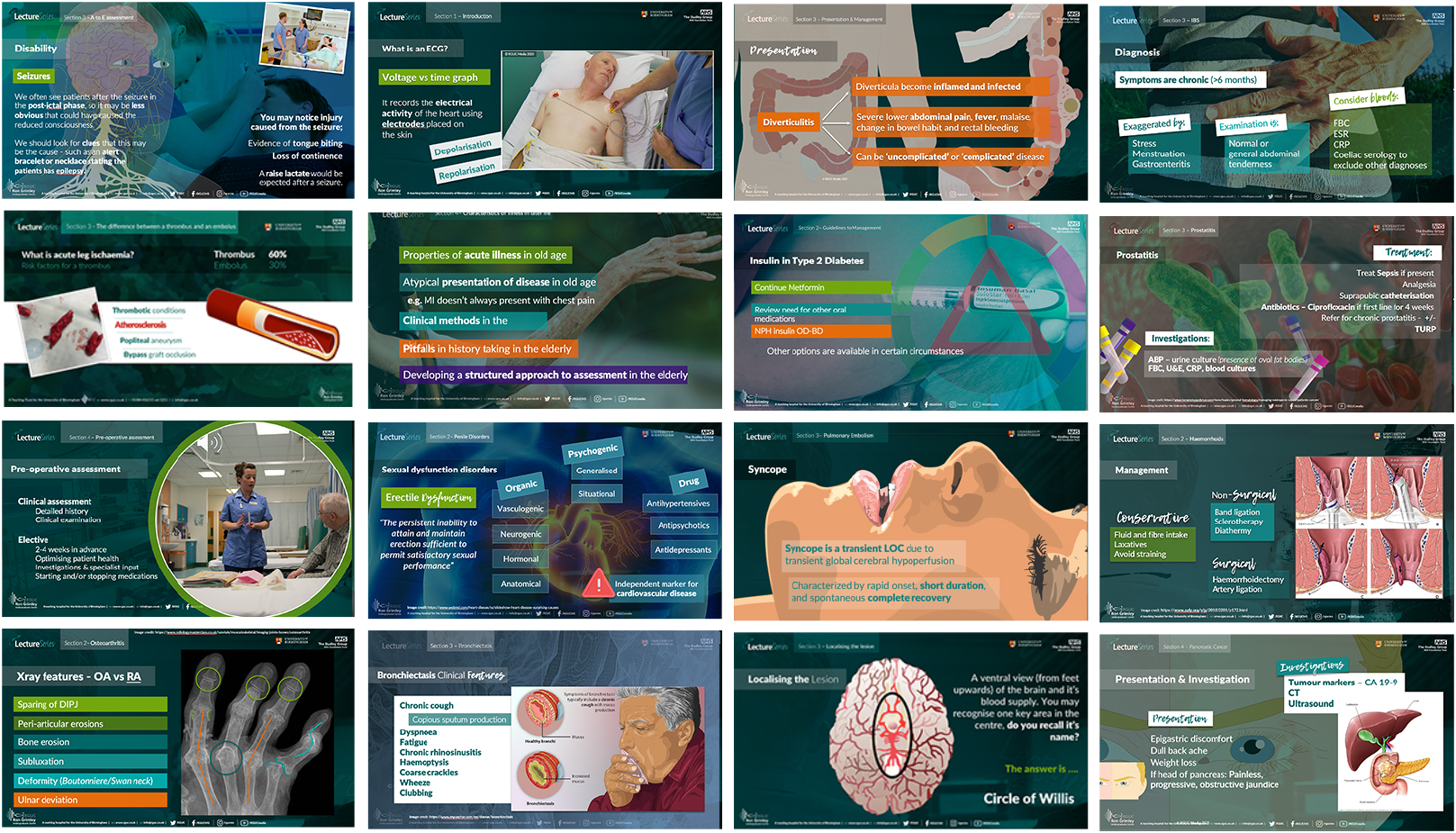
iClinical® Resources
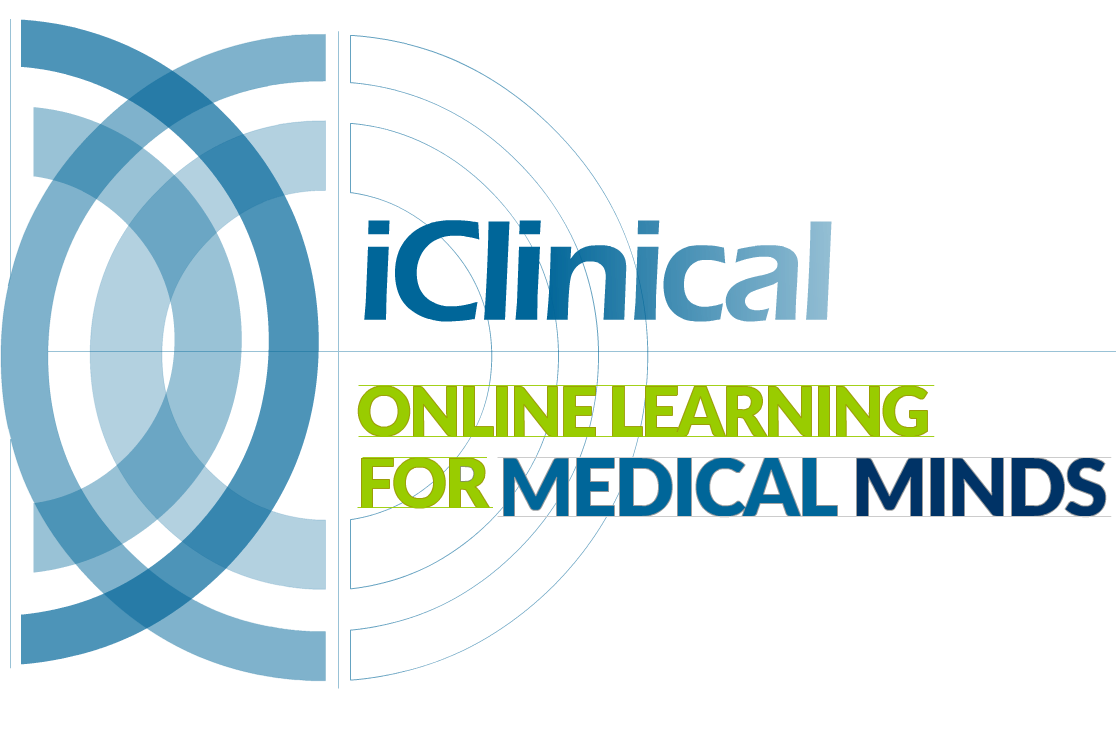
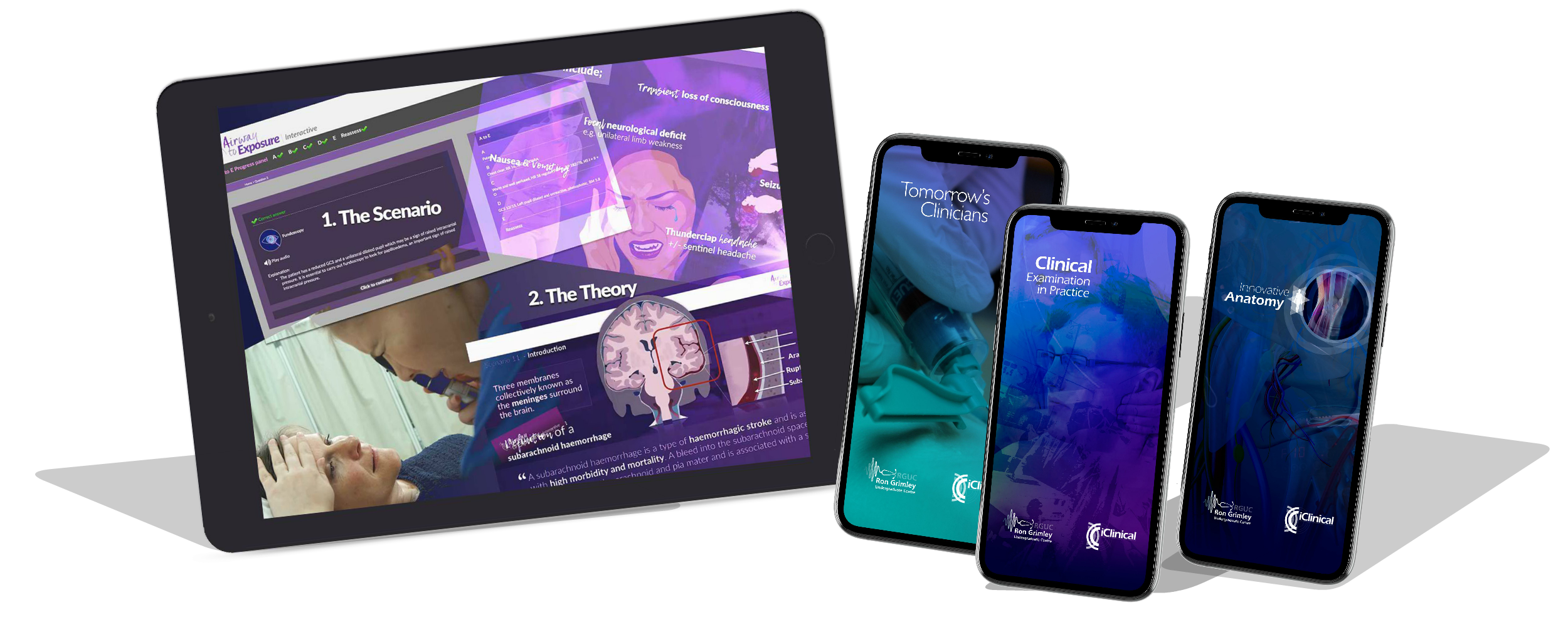
Over the past 18 months, we have been working hard to complete the development of a series of new mobile apps. These apps have allowed us to make our iClinical® resources more widely available to staff and students not just internally, but outside the Trust to users worldwide. University of Birmingham medical students have always had the benefit of having advance access to our learning content via the Online Learning Platform. Some of our resources are also available on the University of Birmingham’s Canvas portal.
The three apps currently available are:
- Tomorrow’s Clinicians
- Innovative Anatomy
- Clinical Examination in Practice
The introduction of these apps allows us to reach a much wider audience of learners and educators. Initial feedback has been very promising, and we are in the process of planning the development of additional apps to enable the rest of our iClinical® learning resources to have the same level of exposure.
Please select the relevant platform from the links below to view the list of apps available.
Download our apps now
IPE Plenary Day

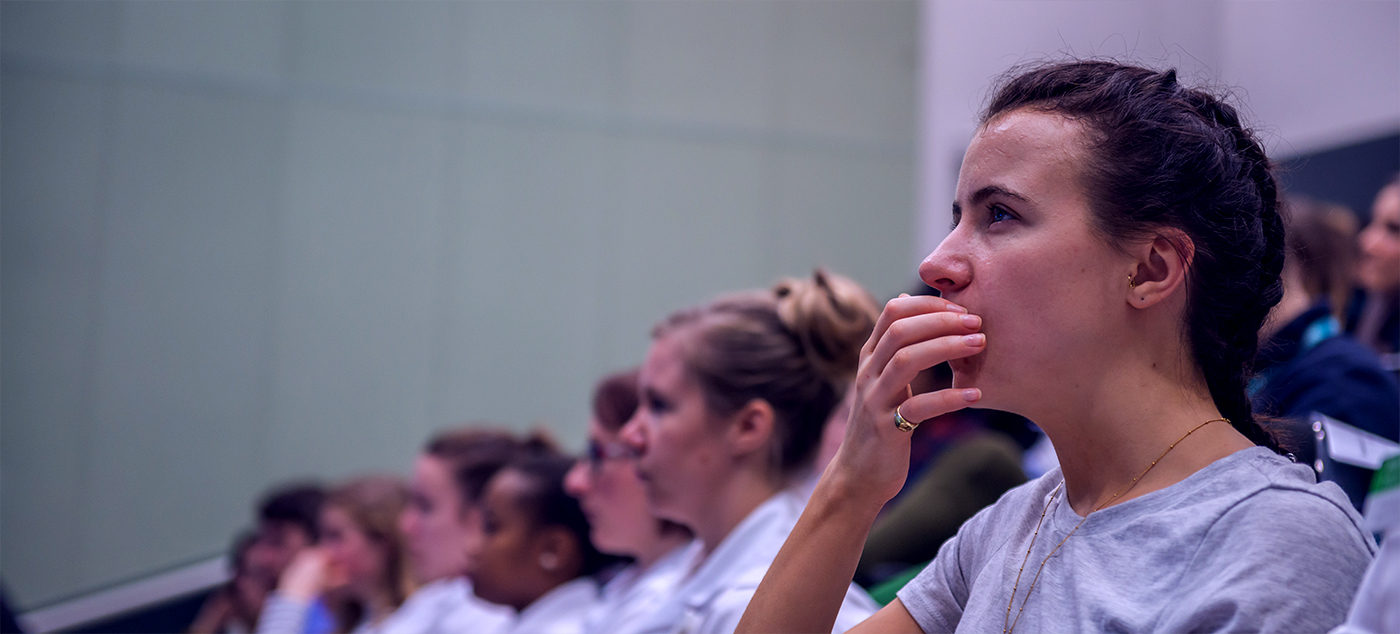
We continue to remain at the forefront in delivering interprofessional education (IPE). In order to provide a true multidisciplinary team approach to the provision of learning, the IPE team consists of members from varying backgrounds including radiology, physiotherapy, nursing and medicine.
The aim of prequalifying IPE is to heighten the students’ appreciation of safe and effective practice. This creates opportunities for them to explore ways in which professions can work more closely together, responding more fully, effectively and economically to the multiple and ever-increasingly complex needs of the population.
Interprofessional Education Plenary Day
Third year medical students are encouraged to take part in our annual IPE plenary day, which has been successfully running since 2009. The four main themes focus on team working, patient safety, non-technical skills and human factors. These are encompassed within the overarching concept of “collaborative multidisciplinary team working leads to improved patient care”.
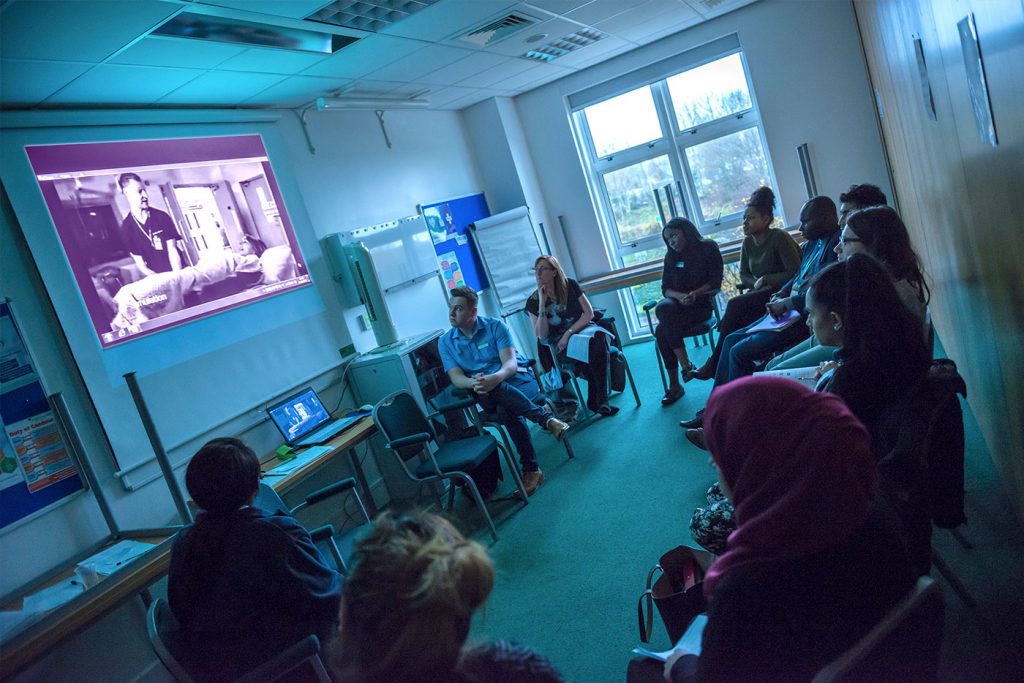
Feedback we receive from students and faculty members supports the development of teaching strategies to improve IPE learning opportunities. As such, the IPE team welcomes ideas or offers of help to facilitate group discussions and workshops.
This year’s IPE Plenary Day is taking place on Tuesday 9th November 2021.
For further information of IPE, please contact dgft.ipl@nhs.net
RGUC Newsletter | Designed and produced by RGUC Digital Media Team for Dudley Group NHS Foundation Trust | ©copyright 2021 | www.rguc.co.uk | September Edition | September 2021



